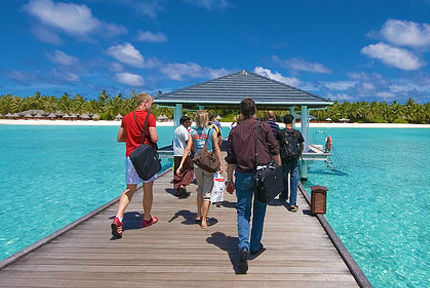Tourist arrivals register double-digit growth in November
Despite tourist arrivals growing by 4.6 percent annually as of November, revenue from Tourism Goods and Services Tax last year decreased by -4.4 compared to 2015, suggesting shorter stays and lower spending by tourists.

12 Jan 2017, 09:00
The peak season of the Maldives’ tourism industry began in November with a robust 16 percent growth in arrivals during the month compared to the same period in 2015.
According to statistics released by the tourism ministry earlier this week, tourist arrivals reached 1.1 million at the end of November, up 4.6 percent from the previous year as arrivals from traditional European markets continued to register significant growth.
However, despite the increase in arrivals, revenue from Tourism Goods and Services Tax last year decreased by -4.4 compared to 2015, suggesting shorter stays and lower spending by tourists.
The tax authority collected US$258 million as T-GST during 2016, down from US$270 million.
Become a member
Get full access to our archive and personalise your experience.
Already a member?
Discussion
No comments yet. Be the first to share your thoughts!
No comments yet. Be the first to join the conversation!
Join the Conversation
Sign in to share your thoughts under an alias and take part in the discussion. Independent journalism thrives on open, respectful debate — your voice matters.




